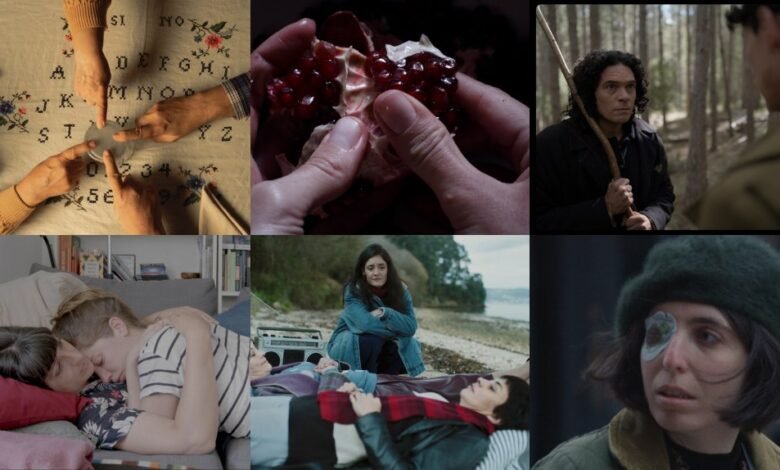Locarno: Six Spanish Titles Selected For First Look Work-In-Progress Sidebar

[ad_1]
First Look, the works-in-progress strand of the Locarno film festival’s industry section, has revealed the six titles selected for its 2024 edition.
This year First Look will highlight independent projects from Spain. The festival said projects were “chosen out of over 40 submissions.” The selected works-in-progress, none of which currently have sales representation, will be presented to accredited industry professionals at the Cinema Rialto during the Locarno Film Festival. The projects will also be available in the digital library of Locarno Pro Online, the platform for accredited industry professionals.
Among the titles is Prefiro condenarme, a documentary directed by Spanish filmmaker and academic Margarita Ledo-Andi. The film is produced by Olaia Ledo and Carmen Ciller. The synopsis reads: 1972: The Ecclesiastical Court of Santiago de Compostela convicted Sagrario Fra, a shellfish harvester in Ferrol, for committing adultery. At the time, many women were being imprisoned or locked up in a mental hospital for what is considered a female-specific criminal act. But Sagrario Fra experiences love as insubordination. Like the birds, flying between heaven and earth, Antigone is latent in Sagrario.
This year’s international First Look jury features Beatrice Fiorentino, (Artistic Director of Venice’s International Film Critics’ Week), Kerem Ayan (Istanbul Film Festival Director), and Mercedes Martínez-Abarca (Programmer for the International Film Festival Rotterdam). The trio will hand out several awards: the Antaviana Films First Look Award covering post-production services up to € 50,000; an award by Spanish post-production company Laserfilm cine y vídeo worth € 5,000, which can be spent on subtitles, audio descriptions, spotting lists, transcriptions or a DCP; and the Music Library & SFX/Acorde Award worth €45,000 in music supervision.
The winners will be announced during the Locarno Pro Award Ceremony on Sunday, 11 August.
Locarno’s First Look has previously highlighted films from Colombia, Mexico, Chile, Brazil, Israel, Poland, the Baltic countries, Portugal, Serbia, Switzerland, Germany, and, last year, the UK.
This year’s selected projects are:
L’Aguait
Directed by: Marc Ortiz
Produced by: Paloma Mora (TV ON Producciones, ADMIRABLE FILMS), Marc Muñoz (lamalanga Produccions Audiovisuals)
Form: Fiction
Teresa Pla, an intersex child assigned female at birth, struggles to be recognized as a man within the archaic Spanish society of the beginning and middle of the 20th century while he is persecuted by guerrillas, bandits and the Guardia Civil (Civil Guard).
Bodegón con fantasmas
Directed by: Enrique Buleo
Produced by: Alejandra Mora (Quatre Films Audiovisuales SL), Alicia Yubero (Cuidado con el perro), Snezana van Houwelingen (This and that), Roberto Butragueño (Sideral)
Form: Fiction
Distressed by the troubles and difficulties of life and death, ghosts and humans of the small town of La Mancha will do the impossible to put an end to their problems and will not hesitate to carry out extreme and desperate plans to achieve it.
Dream of Another Summer
Directed by: Irene Bartolomé
Produced by: Pere Marzo (Colibrí Studio), Irene Bartolomé (I.B. Films) and Elie Kamal (The Attic Productions)
Form: Experimental
Dream of Another Summer tells the story of the encounter between a woman collapsing and a city in ruins in order to explore how the spaces we inhabit relate to us, and to reflect on the mortality and survival of a city.
Mares (Mums)
Directed by: Ariadna Seuba
Produced by: Carles Brugeras, Marieke van der Bersselaar (Polar Star Films), María Nova López (Intactes Films)
Form: Documentary
Mares takes the audience on an intimate and emotionally charged journey with director Ari (32), and her partner Anna (41), who want to have a child together. Anna is the first to begin assisted reproduction, whilst Ariadna captures every step with her camera.
Prefiro condenarme
Directed by: Margarita Ledo-Andión
Produced by: Olaia Ledo, Carmen Ciller (Nós Produtora Cinematográfica Galega.)
Form: Documentary
1972: The Ecclesiastical Court of Santiago de Compostela convicted Sagrario Fra, a shellfish harvester in Ferrol, for committing adultery. At the time, many women were being imprisoned or locked up in a mental hospital for what is considered a female-specific criminal act. But Sagrario Fra experiences love as insubordination. Like the birds, flying between heaven and earth, Antigone is latent in Sagrario.
Río abajo, un tigre
Directed by: Víctor Diago
Produced by: Montse Pujol Solà (Boogaloo Films)
Form: Fiction
Júlia fled to Glasgow to start anew, but years later, she’s stuck. By day, she pursues photography; by night, she washes dishes. One afternoon, while photographing pedestrians, her eyes begin to fail. As illness spreads, Júlia delves into her past and that of the city, recalling a mysterious group that retrieved objects from the river, and Shubham, an Indian boy who, like her, came here for a new beginning.



